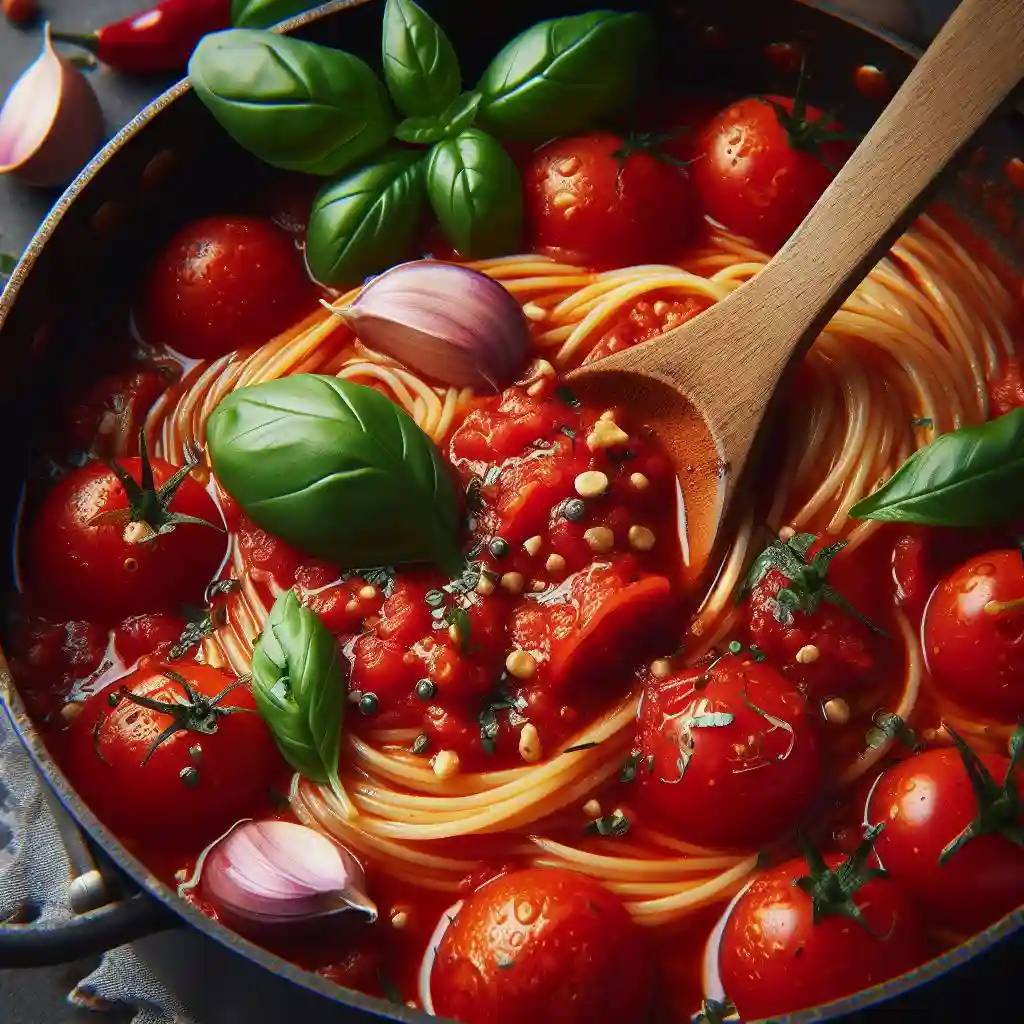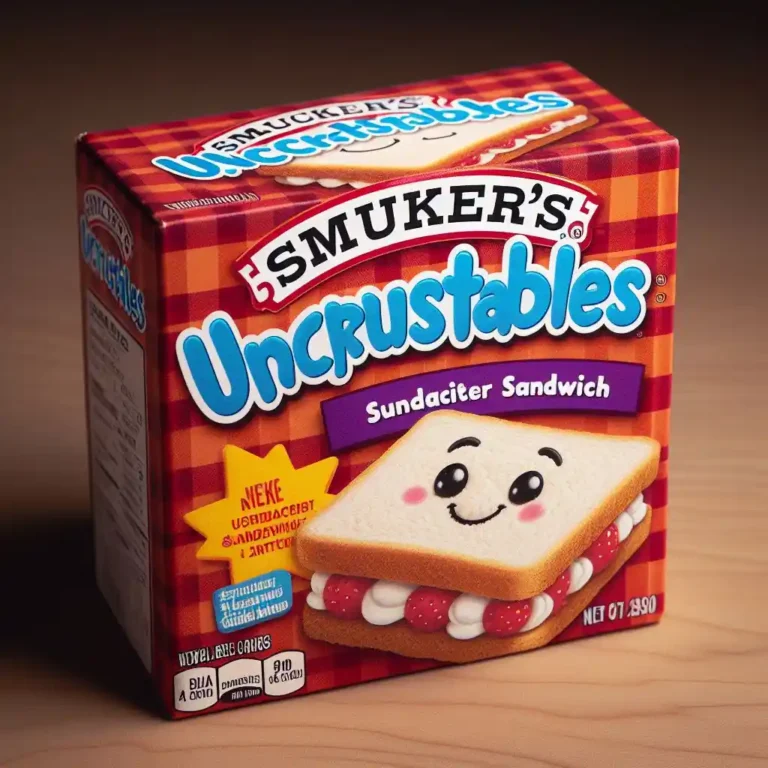How Long Can Spaghetti Sauce Sit Out? Informative Outlook
Have you ever wondered how long spaghetti sauce can sit out before it goes bad? In this informative blog post, we will explore the ins and outs of spaghetti sauce storage and shelf life.
From the basics of food safety to recognizing signs of spoilage, we’ve got you covered. So, let’s dive in and find out just how long spaghetti sauce can safely sit out!
How Long Can Spaghetti Sauce Sit Out?

Are you wondering how long spaghetti sauce can sit out before it becomes unsafe to eat? You’re not alone! As a popular pasta sauce, it’s essential to know the guidelines for storing and consuming spaghetti sauce. Here’s the full guide to help you enjoy your spaghetti sauce safely:
The 2-Hour Rule
Spaghetti sauce can sit out at room temperature (around 73°F to 79°F or 23°C to 26°C) for up to 2 hours. This is because bacteria like Staphylococcus aureus, Salmonella, and Clostridium perfringens can multiply rapidly between 40°F and 140°F (4°C and 60°C), which is known as the “danger zone.”
Beyond 2 Hours: The Risks
If spaghetti sauce sits out for more than 2 hours, the risk of foodborne illness increases. Bacteria can multiply rapidly, and toxins can form, making you or your family sick. Symptoms of food poisoning may include:
- Nausea and vomiting
- Diarrhea
- Abdominal cramps
- Fever
- Headache
Safe Storage Options
To keep spaghetti sauce fresh and safe, follow these storage guidelines:
- Refrigerate: Store spaghetti sauce in the refrigerator at a temperature of 40°F (4°C) or below within 2 hours of cooking or opening.
- Freeze: Freeze spaghetti sauce at 0°F (-18°C) or below to keep it fresh for longer. When you’re ready to eat, thaw it in the refrigerator or at room temperature.
Refrigeration Guidelines
- Cooked spaghetti sauce can be stored in the refrigerator for 3 to 5 days.
- Opened store-bought spaghetti sauce can be stored in the refrigerator for 5 to 7 days.
- Homemade spaghetti sauce can be stored in the refrigerator for 3 to 5 days.
Freezer Guidelines
- Cooked spaghetti sauce can be frozen for 3 to 4 months.
- Opened store-bought spaghetti sauce can be frozen for 3 to 4 months.
- Homemade spaghetti sauce can be frozen for 3 to 4 months.
Tips for Longer Storage
- Use Airtight Containers: Store spaghetti sauce in airtight containers to prevent contamination and spoilage.
- Label and Date Containers: Label and date containers with the contents and storage date to ensure you use the oldest sauce first.
- Store in the Coldest Part of the Refrigerator: Store spaghetti sauce in the coldest part of the refrigerator to maintain a consistent refrigerator temperature.
- Freeze in Small Portions: Freeze spaghetti sauce in small portions to make it easier to thaw and use only what you need.
When in doubt, throw it out! If you’re unsure whether spaghetti sauce is still safe to eat, it’s better to err on the side of caution and discard it.
Why Proper Storage and Handling Matter?
When it comes to spaghetti sauce, understanding the risks of spoilage is crucial. This beloved pasta accompaniment can quickly become a breeding ground for harmful bacteria, leading to foodborne illnesses if not stored and handled properly.
The consequences of consuming contaminated spaghetti sauce can be severe, making it essential to prioritize safe storage and handling practices.
Factors Influencing Spaghetti Sauce Shelf Life

Several critical factors impact the shelf life of spaghetti sauce, including:
- Temperature Control: Maintaining a consistent refrigerator temperature of 40°F (4°C) or below is vital. Room temperature storage can significantly increase the risk of spoilage.
- Proper Storage Containers: Airtight containers and glass jars with tight-fitting lids are ideal for storing spaghetti sauce. Avoid using metal containers, as they can react with the acidity in the tomatoes, compromising the sauce’s quality and safety.
- Acidity Levels: Tomato-based sauces have a natural acidity that helps preserve them. However, if the acidity level is too low, the risk of spoilage increases, making it essential to monitor and adjust the acidity accordingly.
- Clean Handling Practices: Always handle spaghetti sauce with clean utensils and spoons to prevent cross-contamination and minimize the risk of spoilage.
How Long Can Spaghetti Sauce Sit Out Safely?

If you’ve left spaghetti sauce out at room temperature, it’s crucial to know the safe storage time frame to avoid spoilage. Generally, spaghetti sauce can sit out at room temperature for:
- 2 hours: This is the maximum time frame for spaghetti sauce to sit out at room temperature. After 2 hours, the risk of spoilage increases significantly, making it essential to refrigerate or freeze the sauce promptly.
- 1 hour: If the room temperature is above 75°F (24°C), it’s recommended to discard the spaghetti sauce after 1 hour to minimize the risk of spoilage and foodborne illnesses.
Refrigerated Spaghetti Sauce: Shelf Life and Storage Guidelines

Refrigerated spaghetti sauce can last for several days to a week when stored properly. Here are some guidelines to follow:
- 3 to 5 days: This is the general shelf life of refrigerated spaghetti sauce. Make sure to check the sauce daily for signs of spoilage, such as off smells, slimy texture, or mold growth.
- 5 to 7 days: If you’ve stored the spaghetti sauce in an airtight container and kept the refrigerator at a consistent temperature below 40°F (4°C), it may last up to 7 days.
Frozen Spaghetti Sauce: The Ultimate Long-Term Storage Solution

Freezing spaghetti sauce is an excellent way to extend its shelf life. Frozen spaghetti sauce can last for:
- 3 to 6 months: When stored in an airtight container or freezer bag, frozen spaghetti sauce can last for several months.
- 6 to 12 months: If you’ve used a vacuum sealer or frozen the sauce in small portions, it can last up to a year.
Identifying Spoilage: When to Discard Your Spaghetti Sauce
Regularly inspect your spaghetti sauce for signs of spoilage. If you notice any of the following, it’s time to discard the sauce:
- Off smell or slimy texture
- Mold or yeast growth
- Sluggish or separated texture
- Unusual color or cloudiness
Safe Handling and Storage Tips to Extend Spaghetti Sauce Shelf Life
To extend the shelf life of your spaghetti sauce, follow these safe handling and storage tips:
- Always use clean utensils and containers when handling spaghetti sauce.
- Store spaghetti sauce in airtight containers or glass jars with tight-fitting lids.
- Label and date containers to ensure you use the oldest sauce first.
- Freeze spaghetti sauce in small portions to prevent having to discard large quantities.
- Defrost frozen spaghetti sauce in the refrigerator or by leaving it in room temperature for a few hours.
FAQs
Q: How long can spaghetti sauce sit out at room temperature?
A: Spaghetti sauce can sit out at room temperature for up to 2 hours.
Q: What happens if spaghetti sauce sits out for too long?
A: If spaghetti sauce sits out for too long, the risk of foodborne illness increases. Bacteria can multiply rapidly, and toxins can form, making you or your family sick.
Q: How can I store spaghetti sauce safely?
A: To store spaghetti sauce safely, refrigerate it at a temperature of 40°F (4°C) or below within 2 hours of cooking or opening. You can also freeze it at 0°F (-18°C) or below to keep it fresh for longer.
Q: How long can spaghetti sauce be stored in the refrigerator?
A: Cooked spaghetti sauce can be stored in the refrigerator for 3 to 5 days. Opened store-bought spaghetti sauce can be stored in the refrigerator for 5 to 7 days. Homemade spaghetti sauce can be stored in the refrigerator for 3 to 5 days.
Q: How long can spaghetti sauce be frozen?
A: Cooked spaghetti sauce can be frozen for 3 to 4 months. Opened store-bought spaghetti sauce can be frozen for 3 to 4 months. Homemade spaghetti sauce can be frozen for 3 to 4 months.
Q: What are the signs of spoilage?
A: Check for visible signs of spoilage, such as an off smell, slimy texture, or mold growth. If you notice any of these signs, it’s best to discard the spaghetti sauce.
Q: Can I reuse spaghetti sauce that has been left out too long?
A: No, it’s not recommended to reuse spaghetti sauce that has been left out too long. This can increase the risk of foodborne illness. Instead, discard the sauce and make a fresh batch.
Q: How can I prevent foodborne illness from spaghetti sauce?
A: To prevent foodborne illness from spaghetti sauce, always handle and store it safely. Refrigerate or freeze it promptly, and check for signs of spoilage before consuming.

DK Jacks is a passionate food enthusiast, recipe developer, and culinary explorer. With a love for both traditional and innovative flavors, DK brings a fresh perspective to the kitchen. When not experimenting with new ingredients, you’ll find DK capturing food moments through the lens or sharing cooking tips with fellow foodies.🍽️📸✨







